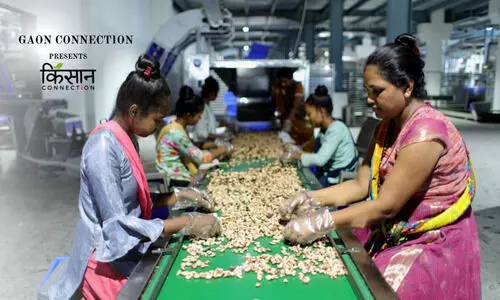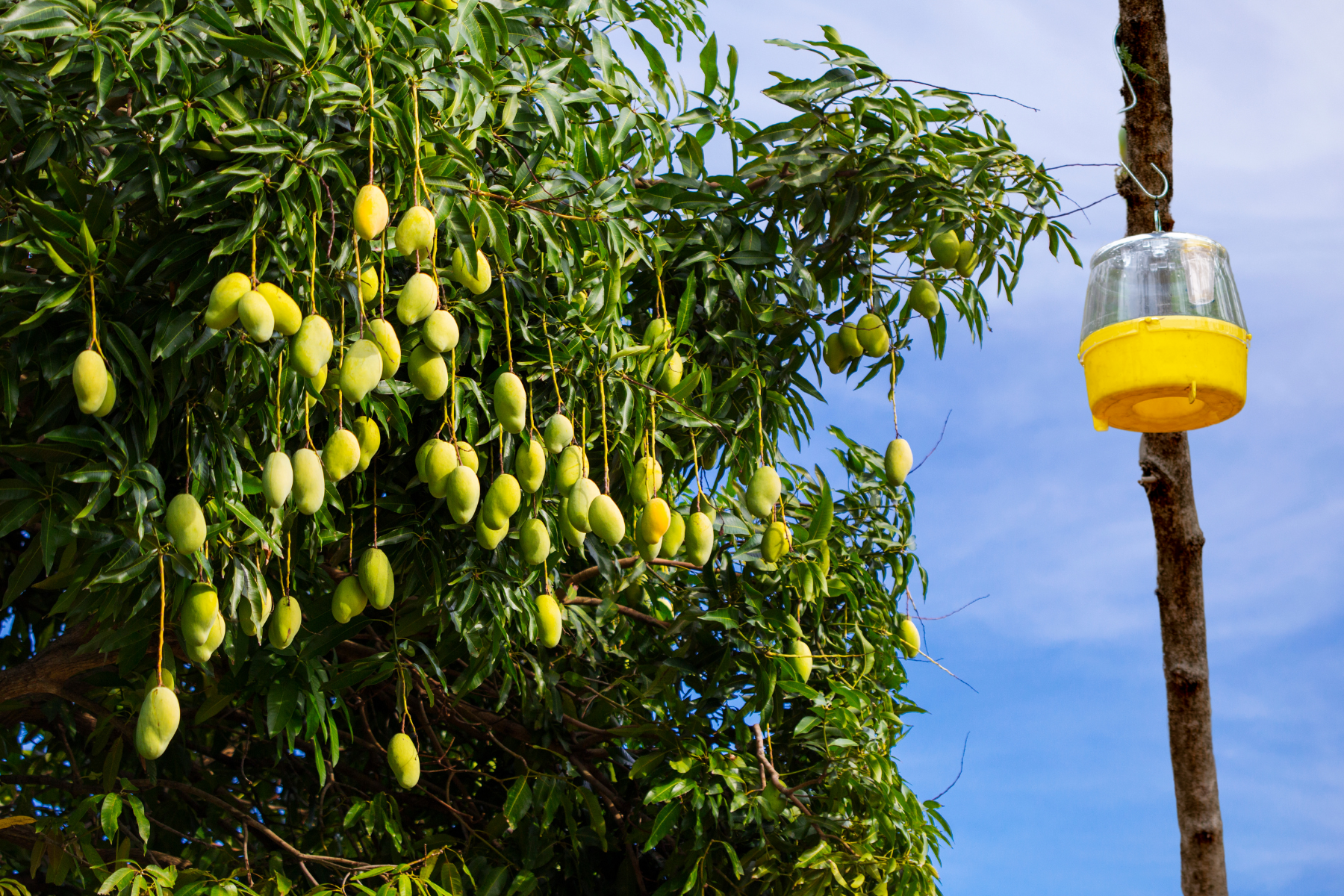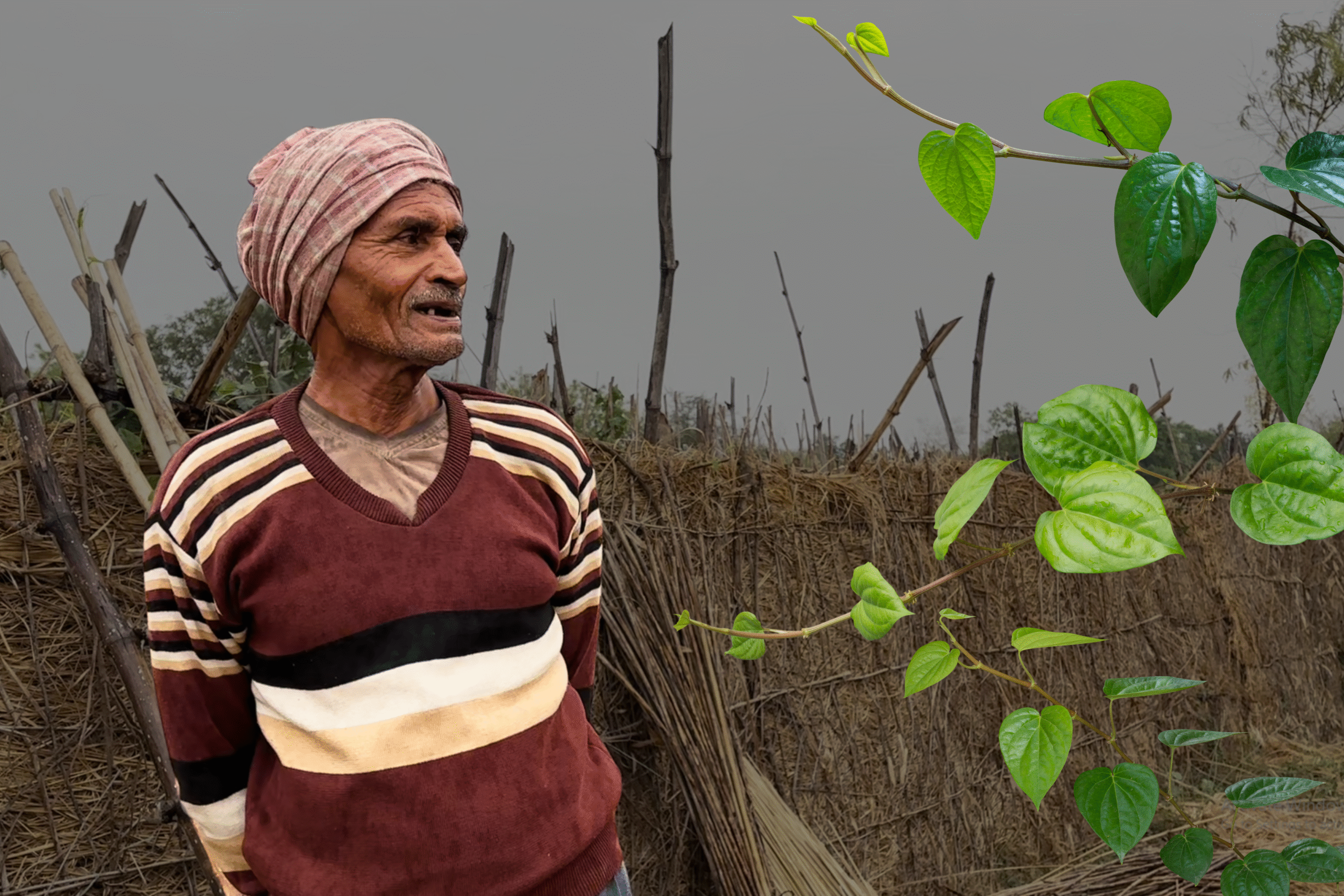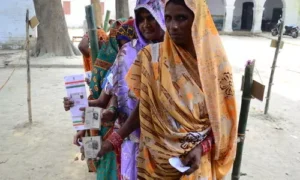Surat, Gujarat
In October 2018, Mangrol taluka in Surat became home to the The Gujarat Agro Infrastructure Mega Food Park set up jointly by the central government and the Gujarat government at a cost of Rs 120 crore on 70 acres of land at Shah village.
Mangrol taluka has about 91 villages in it, and the food park is proving beneficial to the predominantly scheduled caste and scheduled tribe communities that live in that area.
Mangrol has always been short of basic facilities such as education, electricity, proper drinking water, healthcare, transportation, etc. Most inhabitants in the area depend on agriculture for their livelihood which is woefully inadequate to meet their basic needs.
Even if some farmers cultivated fruits such as chikoo and mangoes, they did not have the facilities such as a cold storage to store them in. As a result they would have to sell their produce at the local market at meagre prices. Or, a chunk of their harvest was lost due to rotting.
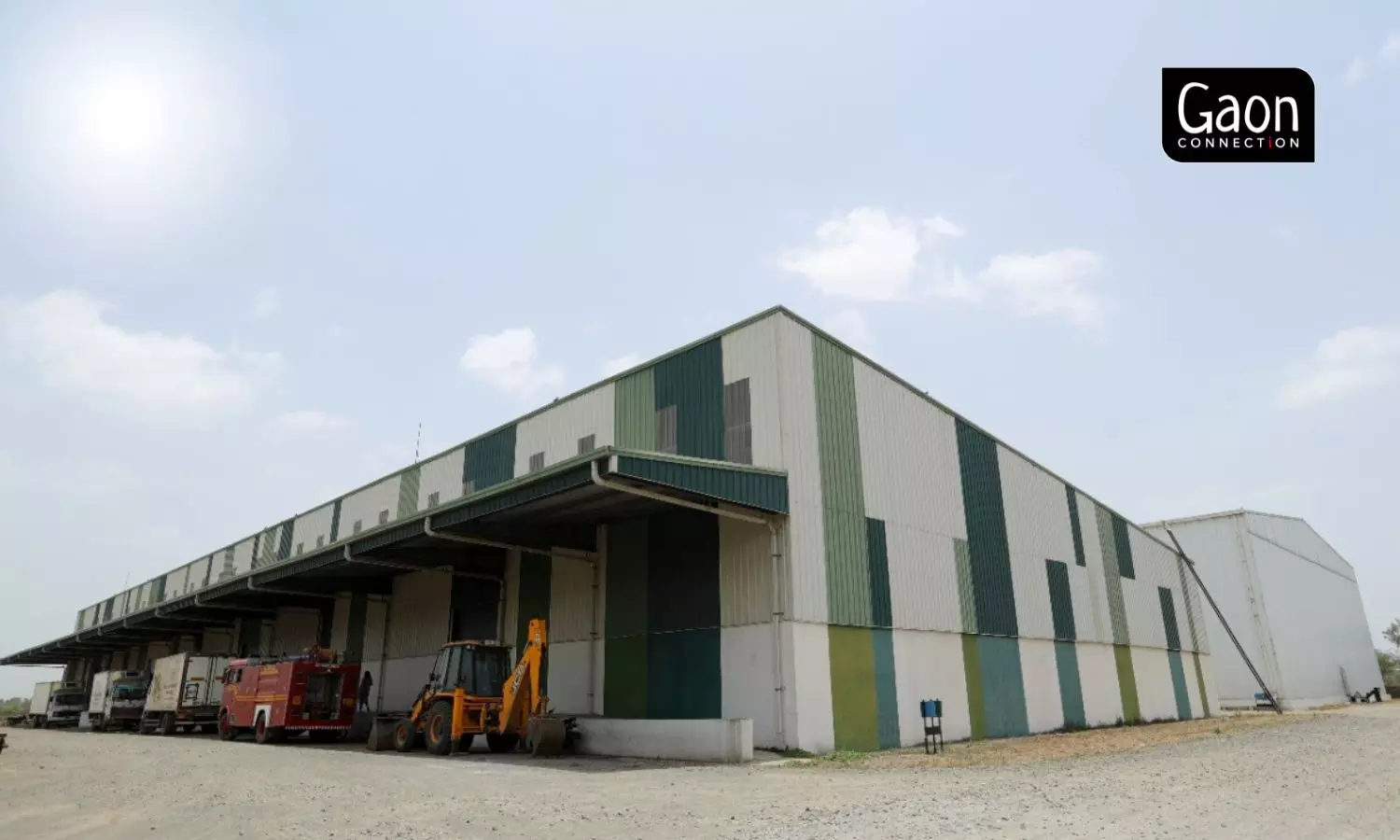
The food park has received financial assistance from NABARD which provided an impetus to development of the food processing sector in the region.
But, the Mega Food Park has begun to change all that. It has a cold storage facility where raw vegetables can be stored. And, hundreds of local women have found employment at the various units of the Food Park.
Also Read: Post-harvest cold storage unit puts smiles back on the faces of farmers in Odisha
“A group of us from different villages of Mangrol work here,” Farzana, a labour contractor at the Park said. She supplies labourers to the various units there.
The park has several food processing units like Poshtik, Aelea Commodities Pvt. Ltd, Parvati Agro, Vitanosh, etc.
“Before we worked here, we stayed home. But, finding jobs at the food park has made us independent and self-reliant. The Food Park here has not just empowered us, it has also led to economic development and social progress of the rural community,” Farzana said.
About the state-of-the-art food park
The Gujarat Agro Infrastructure Mega Food Park is a flagship project of the Ministry of Food Processing Industries. And, its location at a designated tribal zone is part of the Integrated Tribal Development Programme scheme of the government of India.
The 70-acre space is equipped with state-of-the-art cold storage facilities, warehouses for both raw material and processed goods, food testing laboratories, individual quick freezing (IQF) units, four primary processing centres and much more. It also offers supply chain infrastructure, cluster farming facilities and field collection centres to self help groups and individual farmers.
Also Read: Cold storage facilities could cut immense losses for apple farmers in Chamoli, Uttarakhand
The food park has received financial assistance from NABARD. This has provided an impetus to development of the food processing sector in the region. This, in turn, has reduced the wastage of agricultural produce in nearby farms and also created employment opportunities especially in the surrounding villages and tribal areas.
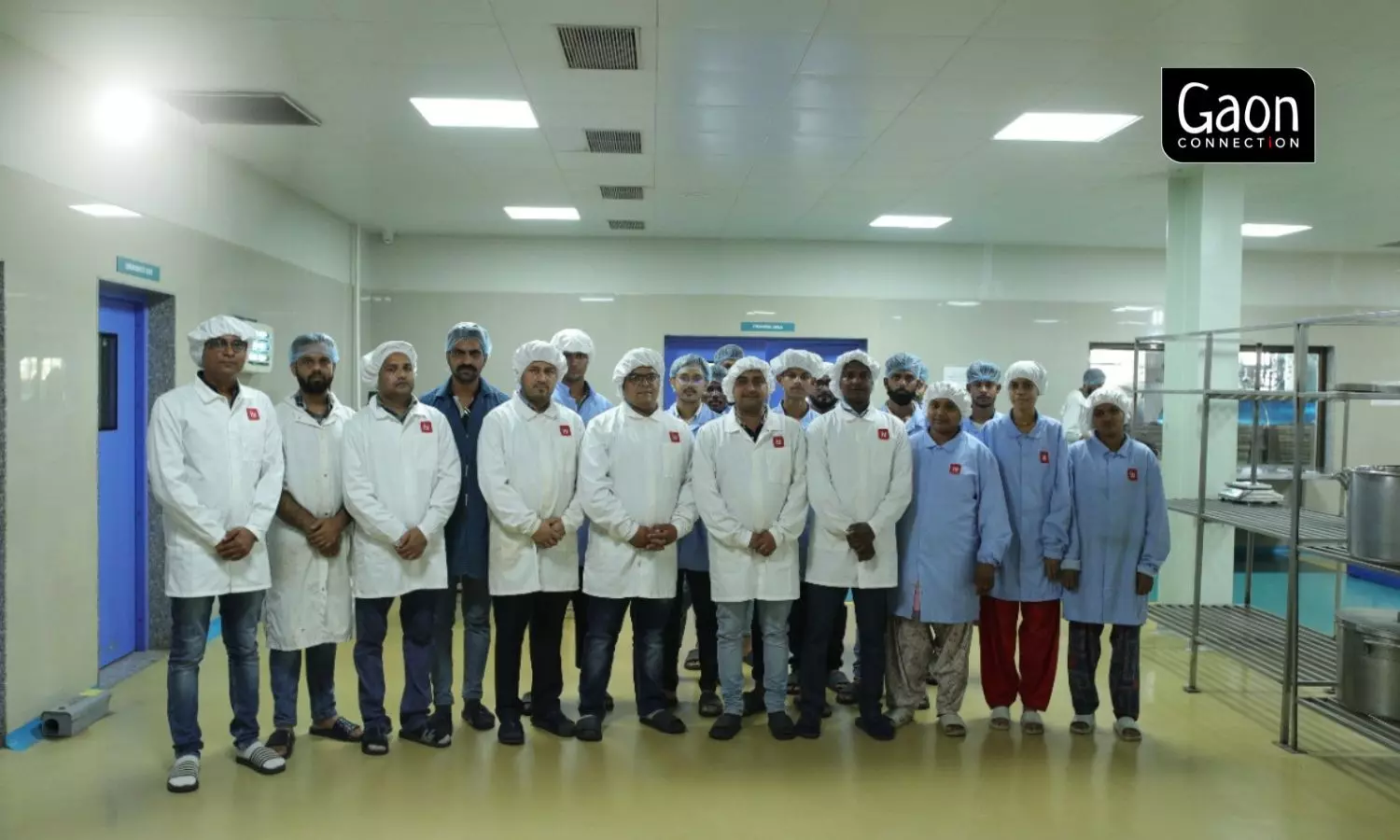
According to Pranav Doshi, promoter of the food park and group director of the URJA group of companies, the Park has created 1,500 jobs, and also employing 2,500-3,000 people and benefitting more than 500 farmers from the nearby areas.
Under the special fund scheme Rs11,765.44 lakh has been sanctioned, out of which NABARD has provided a term loan of Rs 3,791.47 lakh to the Food Park.
This fund is designed to support innovative, technological advancement in the agro-food processing sector, and has resulted in process technology upgradation, automation, increased efficiency, improvement in product quality, reduction in costs, etc.
Also Read: Cold wave in Rajasthan: 40% mustard crop lost to ground frost, complain farmers
With 7,000 tonnes of cold storage and 2000 tonnes of frozen area facility, 50 food processing units are expected to generate 4,000 jobs besides benefiting farmers from the adjoining villages of Shah, Limbada, Vasravi, Dungri, Harsani, Ambavadi, Ghodbar, Kosadi, and many others, which are rich in vegetables, fruits, millets, and oilseeds.
There is provision of 7,000 tonnes of godown facility; hence an agro producer can store his produce for any number of days.
Reduction in post harvest losses
NABARD believes the scheme will benefit farmers too. Previously, post harvest losses range from 4-6 per cent for cereals to a whopping18 per cent for fruits and vegetables. Farmers can now directly sell their produce at the Park, or even use the facilities to store or preserve them.
Ratilalbhai Ramubhai Gamit, a farmer from Dungri village, said he had benefited by the opening of the food park. “We can directly sell our tuvar, jowar, soyabean, groundnut and okra at a good price in the park units, and we even make a good profit,” he said. Before the park came up with its facilities to farmers, selling produce was a struggle, he said.
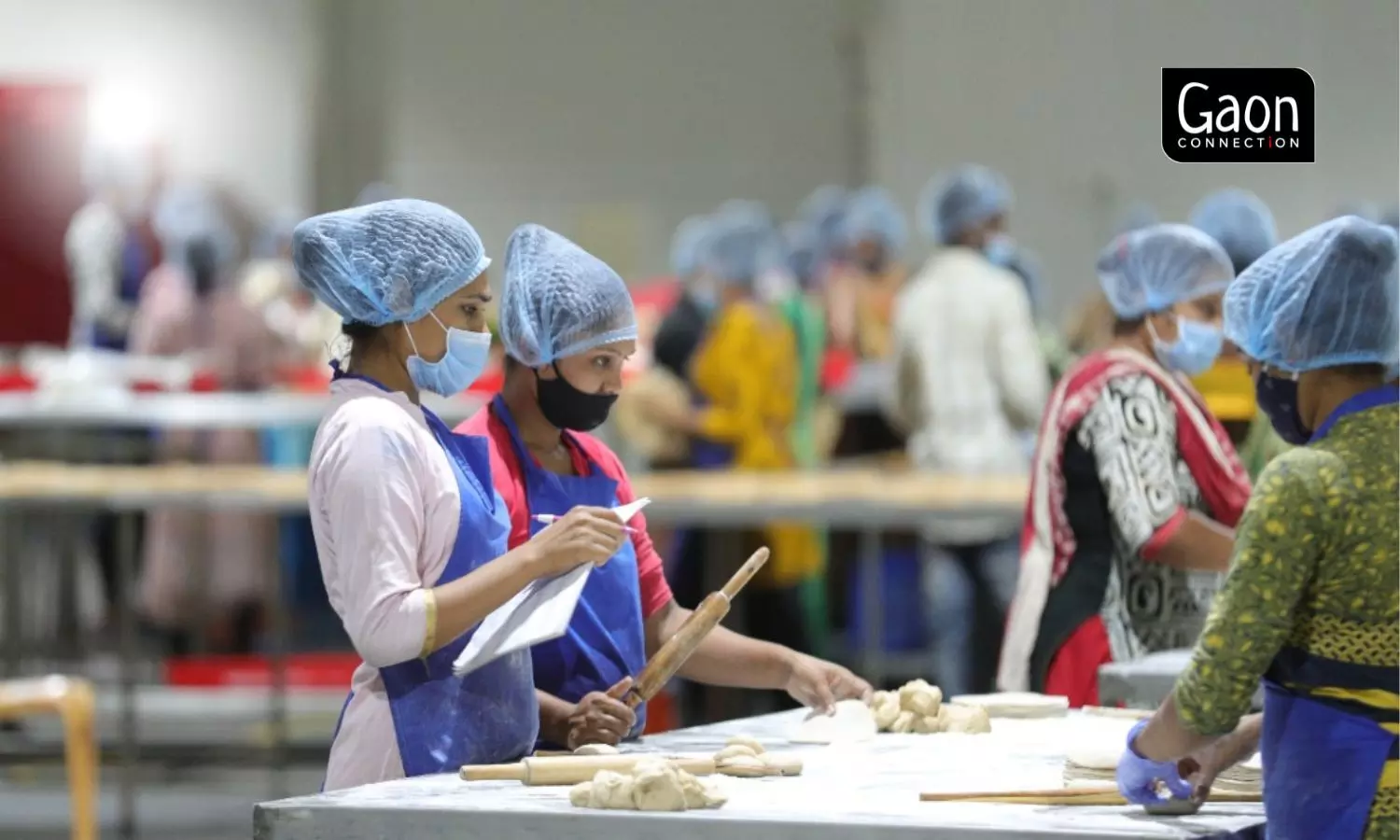
Hundreds of local women have found employment at the various units of the Food Park.
One of the key features of the park’s multi-commodity cold storage facility is the automatic ventilation and air circulation system, which increases the shelf life of a product. In a normal cold storage, the shelf life of a product is three to four months but in this park’s cold storage facility, the shelf life of a product increases upto nine months. At the end of the season, farmers like Ramubhai Gamit, can reap the benefits out of this.
Also Read: Explained: Why are cumin prices at an all time high? Are jeera farmers benefitting?
“The modern storage facility has been a blessing to me and other farmers like me,” said Zuber Patel from Shah village.
“We can now store our produce like mango, lady fingers, tuvar, jowar, etc in the cold storage. We can also sell our farm produce at the unit and get a good price for it. The food park has provided us with many benefits,” he added.
Creating jobs and spreading prosperity
According to Pranav Doshi, promoter of the food park and group director of the URJA group of companies, the Park has created 1,500 jobs, and also employing 2,500-3,000 people and benefitting more than 500 farmers from the nearby areas. It also has provision for indirect employment of 15,000 people from the surrounding areas, he said.
“In the coming years, the Food Park will generate immense revenue for the industry and the farmers. It will also boost the food processing sector in the country,” said Pranav Doshi.
According to him, the park has gathered Rs 400 crores as investment already, almost double the goal of Rs 250 crores, as set by the government for other parks. This is expected to rise to 700-750 crores which is quite noteworthy, he pointed out.
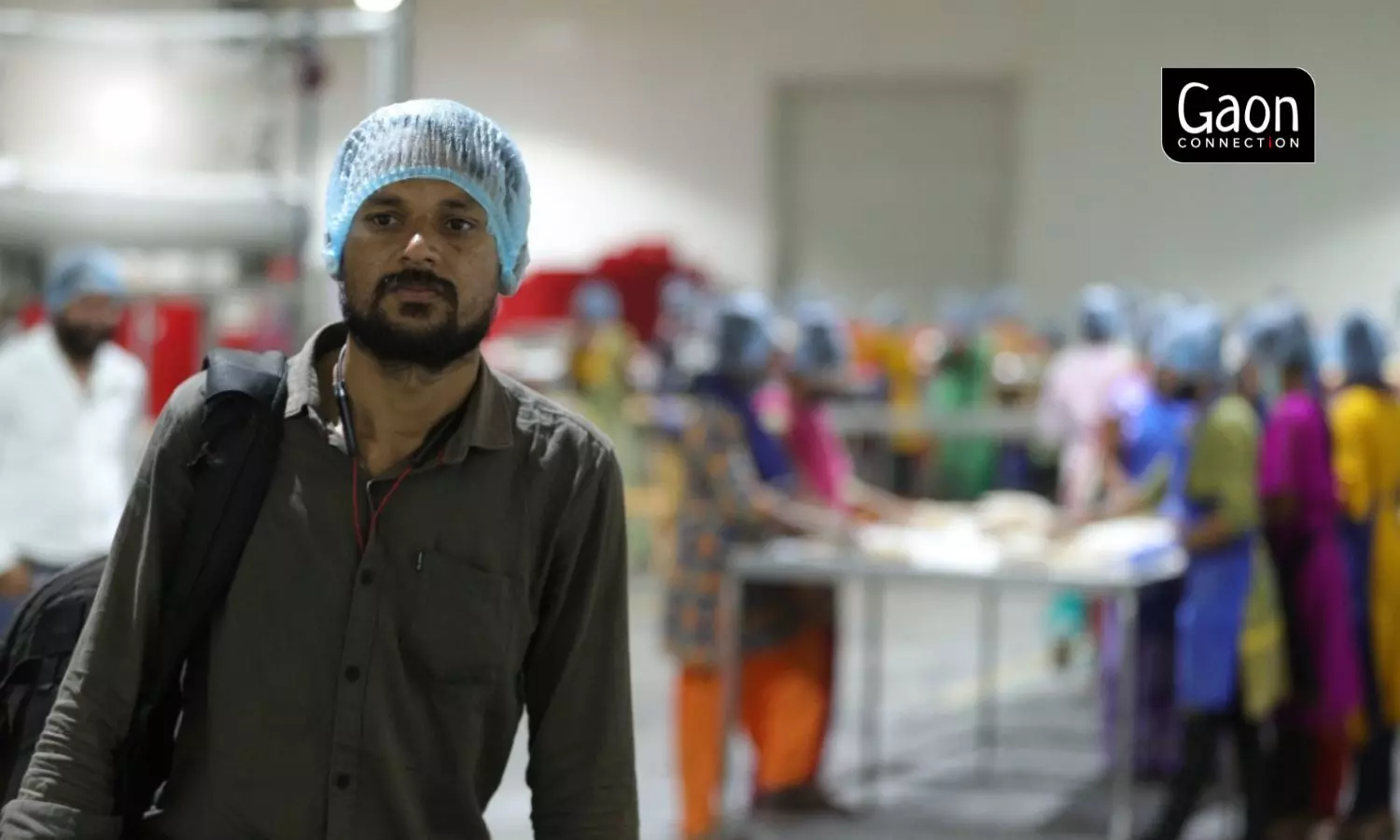
The food park has also made Farmer Interaction Centres where farmers meet and exchange notes and benefit from regular training programmes.
“The food park will create high quality processing infrastructure, build the capacity of producers and processors, reduce waste and create an efficient supply chain along with direct and indirect employment generation,” Doshi explained.
The food park has also made Farmer Interaction Centres where farmers meet and exchange notes and benefit from regular training programmes. The centres also spread awareness regarding various government schemes and NABARD policies. The promoters are trying to collaborate with companies like Gujarat Narmada Valley Fertilizers and Chemicals Ltd to provide essential training to farmers.

